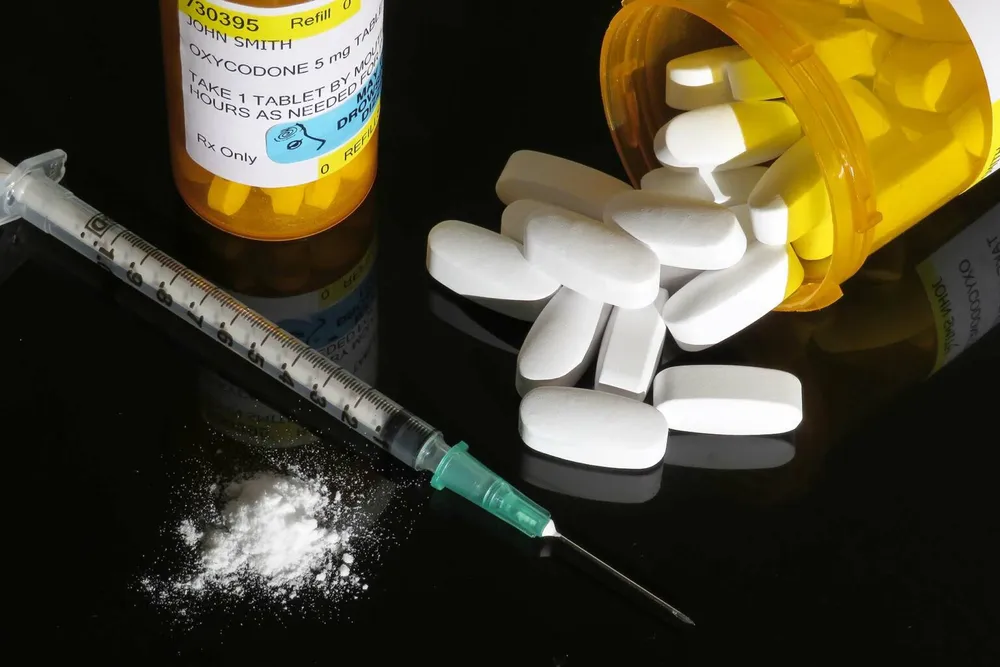Understanding Fentanyl: Risks, Abuse, and Treatment
What Is Fentanyl?
Fentanyl is a synthetic opioid. This means it’s produced in a lab and chemically modified to be stronger than other opioids such as heroin or morphine. It’s usually prescribed to patients in severe pain, most commonly after serious surgeries. Although Fentanyl is used in a number of legal prescriptions, it has become increasingly associated with overdose deaths in recent years because of its potency and addictive properties.
According to the Institute for National Drug Abuse, 59% of opioid-related deaths in 2017 involved Fentanyl, and its prevalence has continued to increase since 2010. Illegal forms of Fentanyl, which can come in variations of tablets, sprays, and powders, are highly dangerous.
One of the reasons Fentanyl is so unsafe and unpredictable is that it is 50-100 times stronger than the standard dose of morphine that doctors prescribe for pain. Different forms are sold on illegal markets because of the drug’s potent effects. These effects are very similar to those of heroin.
Like other opioids, Fentanyl targets the receptors in the brain responsible for regulating emotions and sensations. It causes intense waves of euphoria, pleasure, happiness, and overall pain reduction. These effects, combined with its highly addictive properties, make it clear why Fentanyl is the most common substance in opioid-related deaths today.
Abuse Of Fentanyl
While the high risks of using Fentanyl are well-known, it remains a drug in high demand. And it continues to be sought after by those struggling from substance abuse and addiction.
Often administered and prescribed by doctors during cancer treatments and as a reliever for severe pain after surgeries, Fentanyl is still abused and misused quite often. The most common brand names include as Actiq, Sublimaze, and Duragesic, and do not usually look dangerous or particularly threatening. Since they look like common medications—pills, patches, and lozenges—Fentanyl-based prescriptions pose as high risks for accidental misuse which can lead to abuse and addiction.
Symptoms Of Fentanyl Abuse Or Addiction
No matter what form of Fentanyl you might encounter, it’s a powerful substance that can be abused if used without caution. Addiction can occur in a short period of Fentanyl use, which could lead a person to seek out more accessible options. One example is through illegal markets other than what their doctor had prescribed.
Illegal variations of Fentanyl are so dangerous because they are often laced with other drugs and substances. These combinations increase the health risks of such substances, especially if there are multiple opioids and depressants. Some initial adverse health effects of Fentanyl-related drugs may include:
- Dizziness
- Blurry vision
- Slower breathing
- Seizures
- Constipation
- Drowsiness
- Itching
- Vomiting or nausea
- Slower heart rate
The intense euphoria associated with Fentanyl and other opioids result in a drastic “come-down” after use. This drop in mood, paired with an increase of pain which was previously being numbed, makes Fentanyl use especially addictive. A user might seek out more of the substance to get the same type of high, and to avoid the come downs and withdrawal symptoms.
This type of addiction goes beyond adverse physical side effects; it also has a negative impact on one’s overall quality of life and well-being. If seeking out Fentanyl becomes the focus of one’s day, goals, finances, and relationships, things go downhill really fast. Someone struggling with abuse or addiction to Fentanyl is often unable to maintain life responsibilities. They’ll probably find that their life is in a state of deterioration. But abuse and addiction are not the end of the line—treatment is always possible.
Treating Fentanyl Abuse and Addiction
Most people addicted to Fentanyl began using it because their doctor prescribed it for pain. And although addiction can happen quickly, it’s still possible to break the dependency and addiction. But you need in a supportive environment especially if the person still has physical pain.
When a person joins a treatment program or recovery center, the team should work closely with the individual. They’ll develop a personalized treatment plan to address their individual needs and struggles. Detox is one of the aspects often needed to recover from Fentanyl addiction.
Those who have an addiction to Fentanyl will need a professionally-monitored detox regimen. It can be dangerous because withdrawal from Fentanyl and other opioids can be a tough and sometimes life-threatening process. Therefore, doctors in detox programs should be available to monitor a person’s health and administer medication to manage pain, discomfort, and emotional mood swings.
Many people need in-patient treatment, or time spent in a residential recovery center. This is even more necessary if the person is in a high-risk environment for exposure and relapse. Such centers or programs offer treatments for withdrawal symptoms, as well as group and individual therapy meetings.
Therapy is important in order to work through the causes of the addiction and addictive behaviors. At the same time, it’s key to learn coping mechanism strategies that help you to avoid relapse.
Many centers offer treatments that help manage pain without the use of opioids. This includes those whose addiction of Fentanyl is linked to chronic pain or health difficulties. Non-opioid pain relievers are one way to transition, and can help with any chronic pain without supporting addictive habits. Treatment centers also employ other physical practices to deal with chronic pain such as:
- Physical therapy
- Yoga
- Meditation
- Acupuncture
- Other non-pharmaceutical treatments as part of a pain management program
Fentanyl is a dangerous substance in wide-use and circulation. Therefore, it’s essential to understand the risks, symptoms, and options for treatment. It is never too late to seek help, even when a potent substance like opioids is involved.
To learn more about how to start your healing journey at Impact Recovery, get in touch with a member of our team here.
